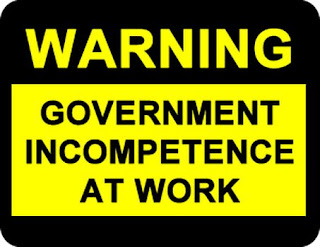Giant Market plans to
sell beer at their Stone Mill Plaza store in Lancaster County!
Weis Market opens
beer cafe in Mechanicsburg!
 |
| Yeah, really, beer in Da Grocery Store in Da Commonwealth!!!! |
Is this great?
Or is it pathetic?
I asked that question
seven years ago, when I first bought a beer at a Pennsylvania supermarket. It's high time that the question was
asked again, because things are
accelerating. We're seeing more and more big supermarkets adding
"beer cafes" and selling sixpacks, and there are going to be
consequences; we need to look ahead at what may happen and consider
action to head it off.
It's a simple problem. It's great that Pennsylvania supermarkets have figured out a way to sell beer, a
workaround that involves sacrificing part of their building to create a "cafe" where people
could have a beer if they
really wanted to (but mostly don't, with a
few cool exceptions where the idea's been embraced) and buying a tavern license, which can be
wicked expensive (
check by county; hello, Chester!). But clearly the big
chain supermarkets -- Giant, Wegmans, Weis, Whole Foods, Giant Eagle -- have found that the
profit is worth the cost, because it seems like a month doesn't go by without another opening.
Why is that a problem? A few things. First, Pennsylvania has a
"quota system" for liquor licenses:
one per 3,000 people in a county. It's essentially a
broken system, as it's never really
kept up with population shifts, and there are a ton of
"grandfathered" licenses in counties that have lost population, and there are a number of
exceptions (The Almighty Liquor Code has a
silly number of kinds of licenses), but essentially, there are
no new tavern licenses being issued. If you want a liquor license, you have to
buy one on the open market, because the Legislature
foolishly made them transferable and salable. I say
"foolishly" because when a liquor license -- a
piece of paper issued by the State with
no intrinsic value except what the State-enforced "quota system" has
given it -- is sold in Chester County, for instance, for
$270,000, the State
gets next to nothing. Even though the full value of that license only exists because of State law. Yeah, I call that
foolish.
 That's a problem,
That's a problem, because every time a supermarket simply wants to sell beer, it buys up another of these
limited licenses, which then become
more scarce, and therefore
more expensive if you want to buy one to open an
actual bar, tavern, brewpub (you need a license to sell anything other than your own beer or Pennsylvania wines at a brewpub), or restaurant. As licenses get more expensive, you get
more chain restaurants and fewer independent operators opening (because they don't have the deep pockets); you get
more nuisance bars (because they have to sell
more booze to make their loan payment), and you get
more high-end places with expensive booze (which isn't bad in and of itself, but if the ratio is unbalanced, people have
fewer choices).
Another part of the problem is that it creates
two tiers of grocery stores: the ones
with beer and the ones
without. I recognize that some grocery stores don't
want to sell beer; especially in rural Pennsylvania, where there are some
family-owned places that simply
don't hold with alcohol at all. Fine, no reason to
force stores to sell beer, but there are stores that would
like to and simply can't afford the
ridiculous unnecessary expense of buying a tavern license
and tying up a substantial amount of retail space and equipment in a "cafe" with
separate beer cashiers.
This was brought up at the
McIlhinney Hearings in 2013, by a representative from
Redner's Warehouse Markets, and Senator McIlhinney's response was essentially 'that's nice, but that ain't gonna happen.' Since then, there have been
attempts to come up with a
separate license for grocery store sales (
of course, another type of license is exactly what we need!), none of which went
anywhere. Given the tenacious opposition of the
beer distributors to
any expansion of grocery store beer sales (and the
likely opposition of the already-licensed groceries), I doubt this will fly, and...
That is going to mean we'll have this half-assed workaround forever. The stores that got a liquor license won't be happy with anything that
devalues that major investment, so they'll be
fighting it. And Pennsylvanians are
pathetically grateful for anything that even
looks like buying beer in grocery stores (and having a liquor license actually puts the stores
one tiny step away from
selling wine, as there's already been a push to allow taverns to sell
"to-go" bottles of wine), so if we think we
have it, we're not going to
push for it;
we're just going to go to the stores that sell beer. That means that more and more supermarkets are going to go after tavern licenses, which is going to
accelerate the scarcity issue (
more chains and more nuisance bars!), and put even more pressure on the family-owned supermarkets to
sell or close.
Well, hello, unintended consequences!
More crappy nuisance bars. Friendly neighborhood bars will
sell their licenses at top dollar while they can, and the families will retire. And we get
further away from a
REAL solution to the problem.
This is yet another fine mess the
PLCB and the
Legislature have gotten us into, with the help of the
MBDA and the behind-the-scenes maneuvering of Bucks County beer mogul (and SEPTA Board and Turnpike Commission member; and did you know he also owns 4% of the Sands Casino?)
Pat Deon. Please note that I do NOT blame the supermarkets; they're just playing the hand that was dealt to them, and playing it well.
The only solution to Pennsylvania's alcohol beverage sales
quagmire is going to be an
all-alcohol solution, some grand bargain that fixes everything. More on that to come.















